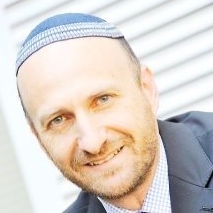OpEds
Any visit to the Constitutional Court is a stirring experience
Once used as a prison for political activists among them Mahatma Gandhi and Nelson Mandela, today it serves as an important vehicle for safeguarding the fundamental human rights and freedoms on which our post-apartheid society is founded.

SHAUN ZAGNOEV
As such, it embodies the miracle of South Africa’s democratic transformation. It’s an inspiring example of how even instruments of repression can become a means of promoting peace and justice.
This week, after more than a decade of complex legal proceedings that included an initial ruling by the South African Human Rights Commission and two subsequent court cases, the South African Jewish Board of Deputies’ (SAJBD’s) hate-speech case against Cosatu’s (the Congress of South African Trade Union’s) Bongani Masuku finally came before the Constitutional Court.
As reported elsewhere in this issue, the matter concerns various threatening and abusive statements made against Jewish supporters of Israel by Masuku in the aftermath of the 2008-2009 Gaza conflict.
While Cosatu has sought to portray the matter as an attempt to silence “legitimate criticism” of Israel, what we believe is at stake is the right of Jews to express support for Israel without being threatened with violent reprisal. As such, the court’s ruling will have significant implications for how the law concerning the anti-hate speech provisions in the Constitution and Equality Act is interpreted and applied in South Africa.
How seriously the Masuku matter is being taken by other civil society organisations, particularly those that involve themselves in combating unfair discrimination, was demonstrated both by the number of amici curiae who participated (friends of the court who present expert evidence to assist the bench in coming to its decision), and by the large number of people attending. The Constitutional Court was packed, as one by one, some of this country’s most eminent legal practitioners presented their arguments about whether Masuku’s comments amounted to hate speech that targeted the mainstream Jewish community.
Though the case revolves around certain comments that we believe to have been menacing and defamatory against on our own community, the across-the-board support we have received for our stance is heartening. To quote one of the supportive tweets received this week, “Hate speech has no place in any society that sees itself as free and democratic. You take up the cudgels for every citizen, irrespective of race, colour, creed, or gender.”
The Masuku matter is, in fact, the second time that a case of anti-Semitism has been brought by the SAJBD before the Constitutional Court. The previous one concerned our complaint against the Islamic Unity Convention, which was frequently cited by those presenting to the court this week.
When these and other SAJBD cases are taken into account, combined with the important input the board has made into the Constitution and Equality Act, one realises how much of an impact our community has had in terms of influencing the development of anti-hate-speech law in this country. It’s one of the ways the board has been able to fulfil its mandate to protect the rights to dignity and equality of the Jewish community and make a meaningful contribution to building South African democracy as a whole.
- Listen to Charisse Zeifert on Jewish Board Talk, 101.9 ChaiFM, every Friday from 12:00 to13:00.